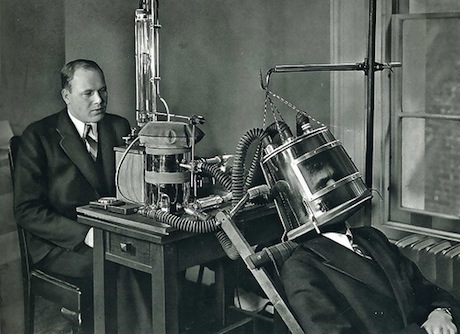Chinwag Psych: Simon White Interview "When Behavioural Economics meets Marketing Models"

Got your ticket for the Chinwag Psych, May 9 event yet? If you don't want to miss out, you can grab yours here and get ready to find out about how machine learning, psychology and neuroscience can change the way you conduct business for the better.
One of our must-see speakers is Simon White, European Planning Chief at DraftFCB.
 He will be sharing his expertise around decision making with a focus on keeping things clear.
He will be sharing his expertise around decision making with a focus on keeping things clear.
“One of the things I have found in terms of the latest understanding of decision science and even behavioural economics, is that it's not having as much of an impact in the world of marketing as we think it is,” he begins. “There's a lot of talk, but people are not generally using it.”
“I think this is because a lot of the time we can look at these things and explain why something works or doesn't. But there isn't actually a simple model yet that you can use to help you predict the right thing to do.”
According to White, there's a host of marketing models that people are taught at university or as they work. He says that behavioural economics is saying that those models are wrong, which might be a good thing, but it does not provide a replacement or alternative solutions that are easy to implement.
Agency Portal
So how can employing a psychologist help with this situation? White says that is might help, but in fact agencies might be able to provide a more convenient answer.
“When you look at agencies, they have always been conduits,” he explains. “For media outlets, for clients who couldn't access all of the publications they needed, an agency could do that. They can also be conduits to expertise and that can mean academics too.”
DraftFCB has this ace up its sleeve already in the form of the Institute of Decision Making, which was created specifically to work with academics.
This process is not just one-way traffic, he makes clear. “There are lots of academics who are very keen to work with us,” he says. “I've worked with people at the London Business School. It's fascinating, they have all this knowledge and yet no practical application for it. Meanwhile we have many practical applications and not enough knowledge.”
“Sometimes we can learn more in two hours with an expert than we might over a week of research groups,” he continues. “While an academic might show us the tip of the iceberg when it comes to their research, to us this information is gold dust.”
Helpful Presentation
So when it comes to working out behavioural economics, irrational behaviours and assembling disparate information, how can an agency best present this to a client?
“Choice of language is really important,” he asserts. “All this talk of irrationality and unpredictability is unhelpful to some extent. I know that's where the industry has grown from but I think spending time saying “aren't people stupid?” and “look if you do this to people, they make bad decisions,” doesn't help make better policies or advertising campaigns.”
He says that in contrast humans are incredibly successful and the decisions that we call irrational or unpredictable can in fact be predicted. “They're actually just things deep in us that are innate and help us survive.”
To get the correct message across, White claims that proven examples that people can understand work best. “I believe quite passionately that everybody has a model of marketing in their head, or a model of advertising which they apply to their daily jobs. They might not realise that they are working to a model, but they are and where you have different people working to different models, you have huge amounts of friction and frustration. This is where you need to take time out and have a discussion."
Ensuring a team is reading from the same hymn sheet is important and one of the best ways to do this is to show lots of ads and models and explain which ones will work and why, backing this up with hard sales figures as evidence.
Psychology In and Out of the Work Place
It's clear from White's own experience using psychological research that there are benefits for those who work in marketing and advertising. But he believes that there is room for companies to look as closely at themselves as they do at their customers.
“There is a bigger question for businesses which is how they themselves make better decisions. That's not something I have worked on, but it has struck me that here I am learning about how consumers make decisions and what we can do to help them make better ones. Now I wonder about how we consider the success and quality of our own decisions. I think the role of psychology there is to help marketing teams, agencies and their clients all make smarter decisions. There's a really big opportunity there.”
Find out more about White's work and the rest of our fantastic range of speakers at the Chinwag Psych event on May 9.
// To grab your ticket to Chinwag Psych click here.
Photo (cc) x-ray delta one.




